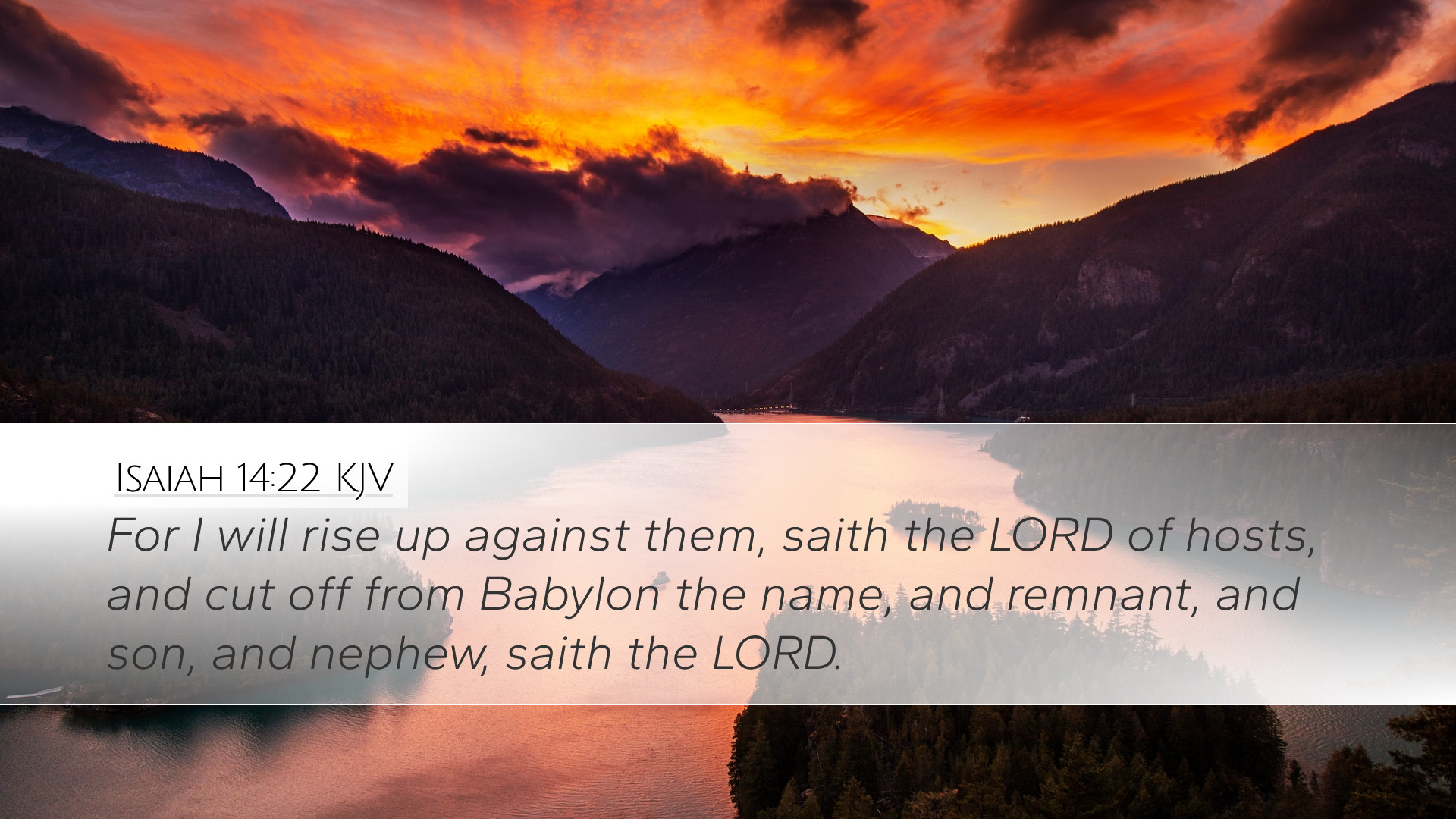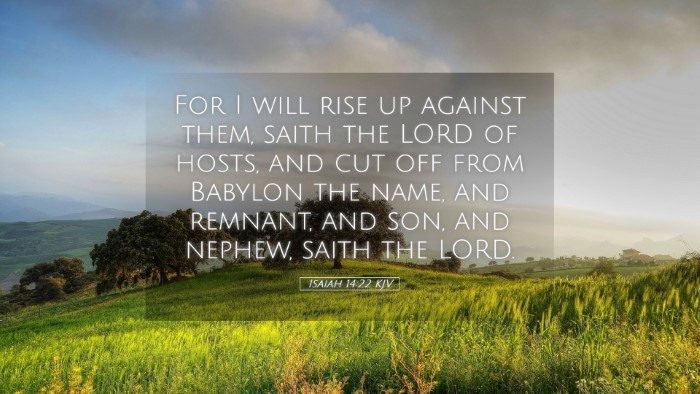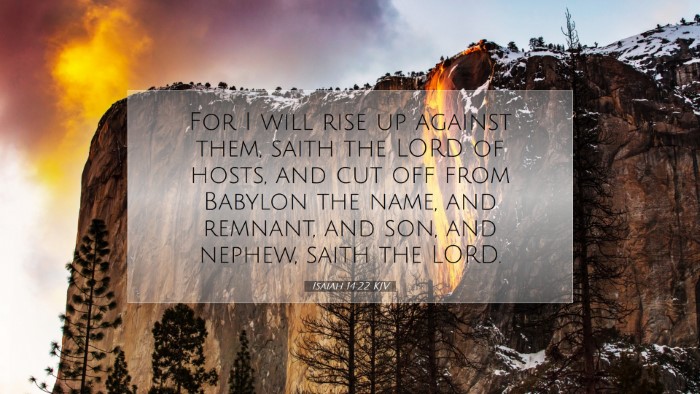Commentary on Isaiah 14:22
Isaiah 14:22: "For I will rise up against them, saith the Lord of hosts, and cut off from Babylon the name, and remnant, and son, and nephew, saith the Lord."
Introduction
This verse is part of a larger prophecy concerning the fate of Babylon, a symbol of opposition to God and His people. In this context, God declares His intention to bring judgment against the prideful empire of Babylon. The insights from various public domain commentaries provide a rich tapestry of interpretation and application for pastors, students, theologians, and scholars.
The Context of Isaiah 14
The chapter begins with a tone of hope for Israel, as God promises to restore His people after their captivity in Babylon. This is juxtaposed against the downfall of the oppressor. Matthew Henry emphasizes that the language used in this chapter serves to bring a message of comfort to the afflicted people of God while simultaneously announcing the judgment upon Babylon, which has become a representation of sin and arrogance.
Albert Barnes notes that the prophecy illustrates God's sovereignty and the finality of His judgments against those who oppose Him. The verse reflects a theme of divine retribution and serves as a warning to all nations that oppose the will of God.
Analysis of Key Phrases
- "I will rise up against them": This phrase underscores God's active engagement in human affairs. Adam Clarke notes that it signifies a determined stance from God, indicating His omnipotence and righteousness in executing judgment.
- "Cut off from Babylon": The term "cut off" implies total destruction, a complete removal of everything associated with Babylon. Henry elaborates on how this reflects God's intent to obliterate the memory and influence of Babylon, reinforcing the idea that divine judgment erases the legacy of rebellious powers.
- "The name, and remnant, and son, and nephew": The specifics of the familial terms used here highlight the thoroughness of the judgment. Barnes points out that God is not only concerned with the physical inhabitants of Babylon but also with its legacy and memory. The judgment extends to all connections and influences of this corrupt city.
Theological Implications
This verse raises significant theological points regarding God’s providence and justice. It affirms God's authority over nations and reinforces the idea that no empire is beyond the reach of divine accountability. Clarke emphasizes that what was true for Babylon is also applicable in contemporary contexts—nations and peoples that oppose God will ultimately face consequences.
Moreover, this verse speaks to the hope of redemption for the faithful remnant. While Babylon stands as a monument to pride and rebellion, God's people are promised deliverance and restoration. This dual message resonates throughout scripture and serves as a reminder of God’s unwavering commitment to His covenant people.
Practical Applications
For pastors and theologians, this verse serves as a vital reminder of the transient nature of human powers versus the eternal nature of God’s kingdom. The implications of judgment call for a reflection on how contemporary nations align themselves with or against divine principles.
In counseling contexts, this passage can provide comfort to those who feel oppressed by systems or authorities that appear powerful and unyielding. As Henry suggests, the promise of God's intervention serves as an assurance of hope for the downtrodden.
For students and scholars, studying this verse encourages a deeper understanding of prophetic literature and its role in both ancient and modern contexts. It invites exploration of the historical significance of Babylon and its symbolic representation of all that stands opposed to God.
Conclusion
Isaiah 14:22 encapsulates significant themes of divine judgment, sovereignty, and the eventual triumph of God's purposes over human arrogance. As believers reflect on this passage, they are reminded of the eternal truth that God will rise against those who oppose Him and will sustain His people through judgment and restoration. The insights from Henry, Barnes, and Clarke collectively call upon the reader to remain steadfast in faith, recognizing that true power lies not in earthly empires, but in the hands of the Almighty.


